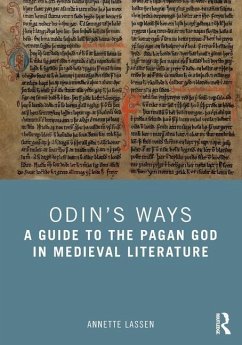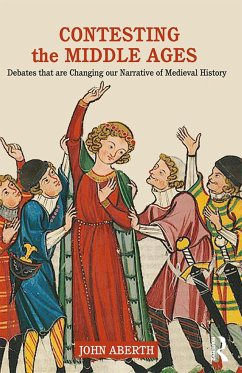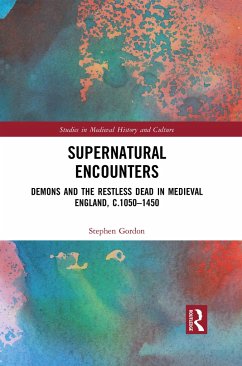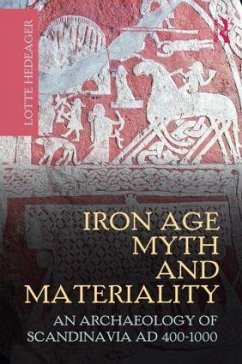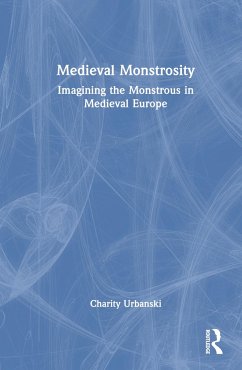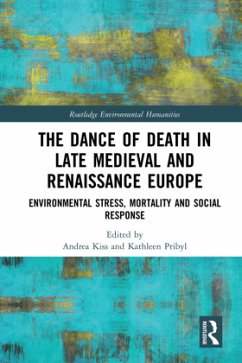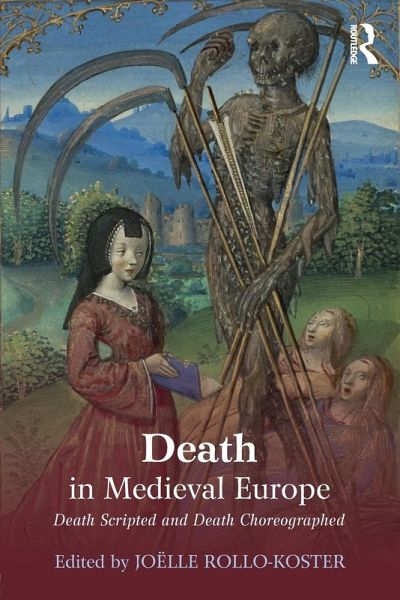
Death in Medieval Europe
Death Scripted and Death Choreographed
Herausgegeben: Rollo-Koster, Joelle

PAYBACK Punkte
25 °P sammeln!
Death in Medieval Europe: Death Scripted and Death Choreographed explores new cultural research into death and funeral practices in medieval Europe and demonstrates the important relationship between death and the world of the living in the Middle Ages.Across ten chapters, the articles in this volume survey the cultural effects of death. This volume explores overarching topics such as burials, commemorations, revenants, mourning practices and funerals, capital punishment, suspiscious death, and death registrations using case studies from across Europe including England, Iceland, and Spain. Tog...
Death in Medieval Europe: Death Scripted and Death Choreographed explores new cultural research into death and funeral practices in medieval Europe and demonstrates the important relationship between death and the world of the living in the Middle Ages.
Across ten chapters, the articles in this volume survey the cultural effects of death. This volume explores overarching topics such as burials, commemorations, revenants, mourning practices and funerals, capital punishment, suspiscious death, and death registrations using case studies from across Europe including England, Iceland, and Spain. Together these chapters discuss how death was ritualised and choreographed, but also how it was expressed in writing throughout various documentary sources including wills and death registries. In each instance, records are analysed through a cultural framework to better understand the importance of the authors of death and their audience.
Drawing together and building upon the latest scholarship, this book is essential reading for all students and academics of death in the medieval period.
Across ten chapters, the articles in this volume survey the cultural effects of death. This volume explores overarching topics such as burials, commemorations, revenants, mourning practices and funerals, capital punishment, suspiscious death, and death registrations using case studies from across Europe including England, Iceland, and Spain. Together these chapters discuss how death was ritualised and choreographed, but also how it was expressed in writing throughout various documentary sources including wills and death registries. In each instance, records are analysed through a cultural framework to better understand the importance of the authors of death and their audience.
Drawing together and building upon the latest scholarship, this book is essential reading for all students and academics of death in the medieval period.





